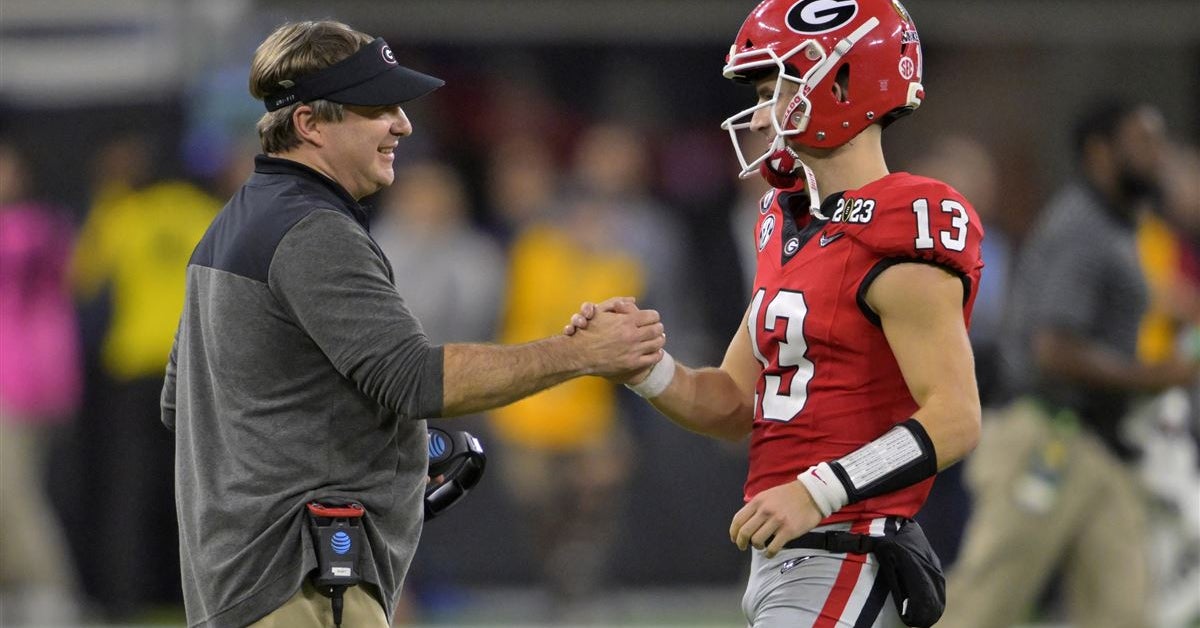Two of the potential changes that may occur in college athletics as a result of the House v. NCAA settlement are caps on roster size and the elimination of walk-on opportunities. Kirby Smart has heard that discussion, but he made it clear on Tuesday that he is treating that speculation as exactly that.
Smart spoke to the media in the midst of the first day of SEC spring meetings and explained he is still learning about what changes could be coming to college football in terms of roster sizes. While Smart made it a point to say he sees value in roster spots and is in favor of still having walk-ons, he emphasized that he’ll be gathering information on the subject over the week of meetings.
“I think that’s what we’re here [for], right, to try and figure that out,” Smart said. “I think there’s a lot of speculation and a lot of narratives out there that are loose and that may not be true. We’re here to figure that out. I’m not completely up to date and educated completely on where it is. I do feel strongly that roster spots are important and that walk-ons are important. Where that falls, that’s what we’re here to decide.”
One of the potential dominoes of last week’s House v. NCAA settlement is the limitation of football roster sizes going forward. In theory, college football rosters would be smaller given the finances now required in a world where revenue sharing with athletes looks like a matter of when and not a matter of if. Roster caps would ensure that all teams — or, at least, all teams in a specific conference — are playing on a level playing field, and the elimination of walk-on spots would be a natural way to shrink rosters.
Smart said his approach to roster management hasn’t changed in the past three years amidst NIL and the transfer portal. He explained that he and the rest of his staff put a lot of time and effort into building the Bulldogs’ roster, which includes the backups as well as the preferred walk-ons.
Smart reiterated that he is still learning about the potential roster changes and that he doesn’t know anyone who wouldn’t defend walk-ons as part of this conversation. That said, he made sure to express why walk-on opportunities are important and rattled off some examples that are hard to wave away.
“When you look at Dabo Swinney’s career, Will Muschamp’s career, you look at Ladd McConkey. You look at guys that have come to schools and then gone on to be successful football players, successful football coaches, successful at everything they do. They overcame the ultimate odds,” Smart said. “I don’t know anybody who would be against having those walk-ons. At what cost does that bring us? I think it hurts high school football and football as a whole when kids can’t even dream about what I might be able to do if I can’t get an opportunity. I think that’s a challenge.”
Smart explained that there’s not been one question that’s dominated the conversation among the coaches at this point in the week. He explained that this is probably the most anticipated SEC spring meetings in his time as a head coach given the questions around college athletics and given the topics that need to be discussed.
“There is so much left not necessarily for us to decide but for us to have input on,” Smart said. “Some of it is beyond our decision-making process, so there is a lot there.”












